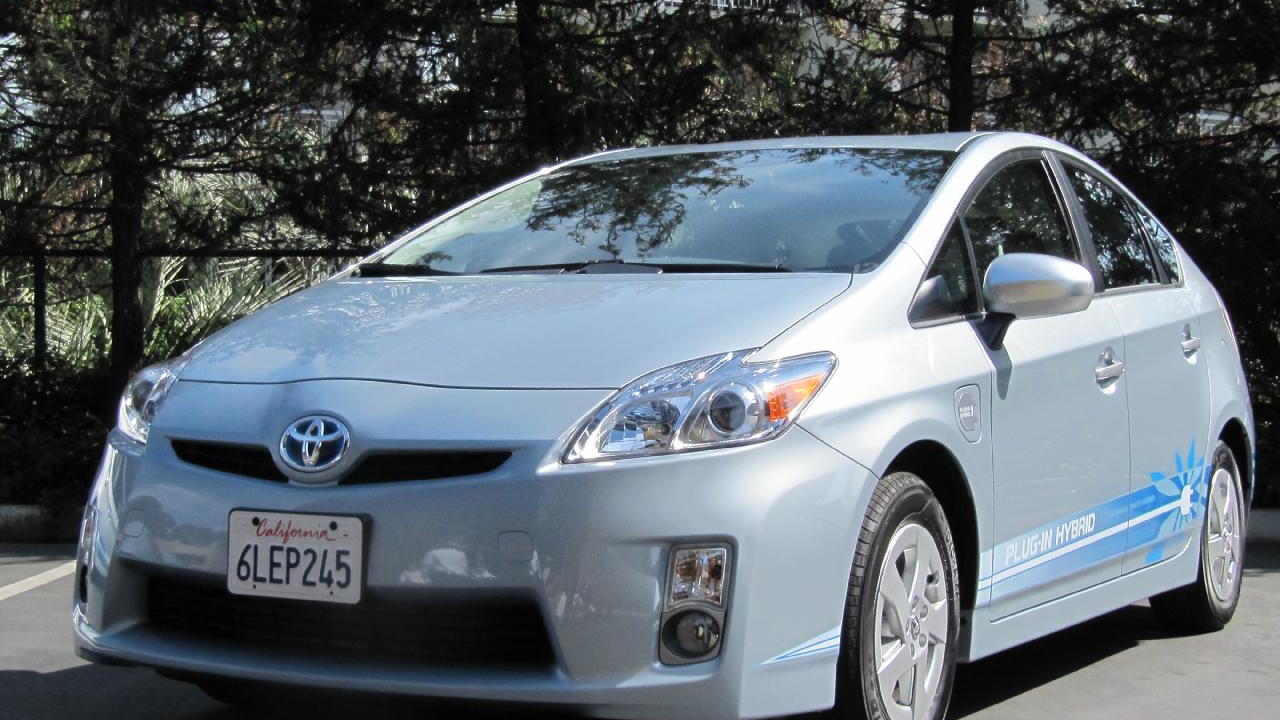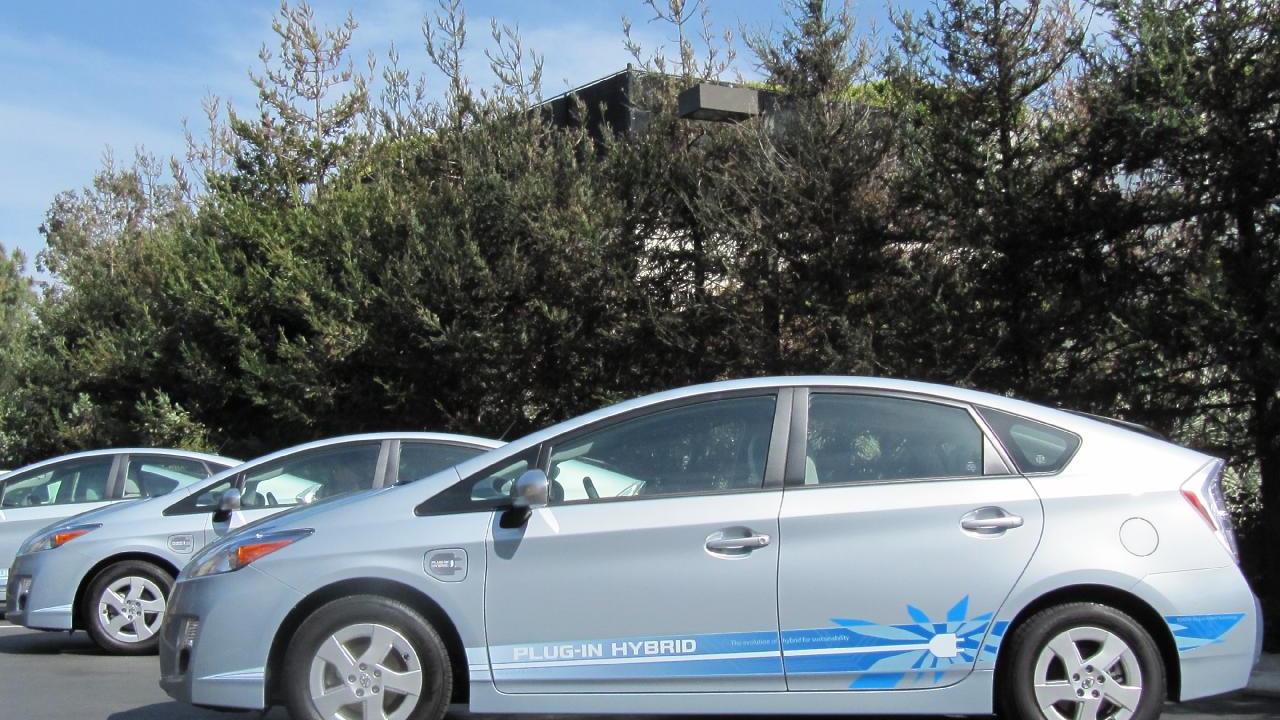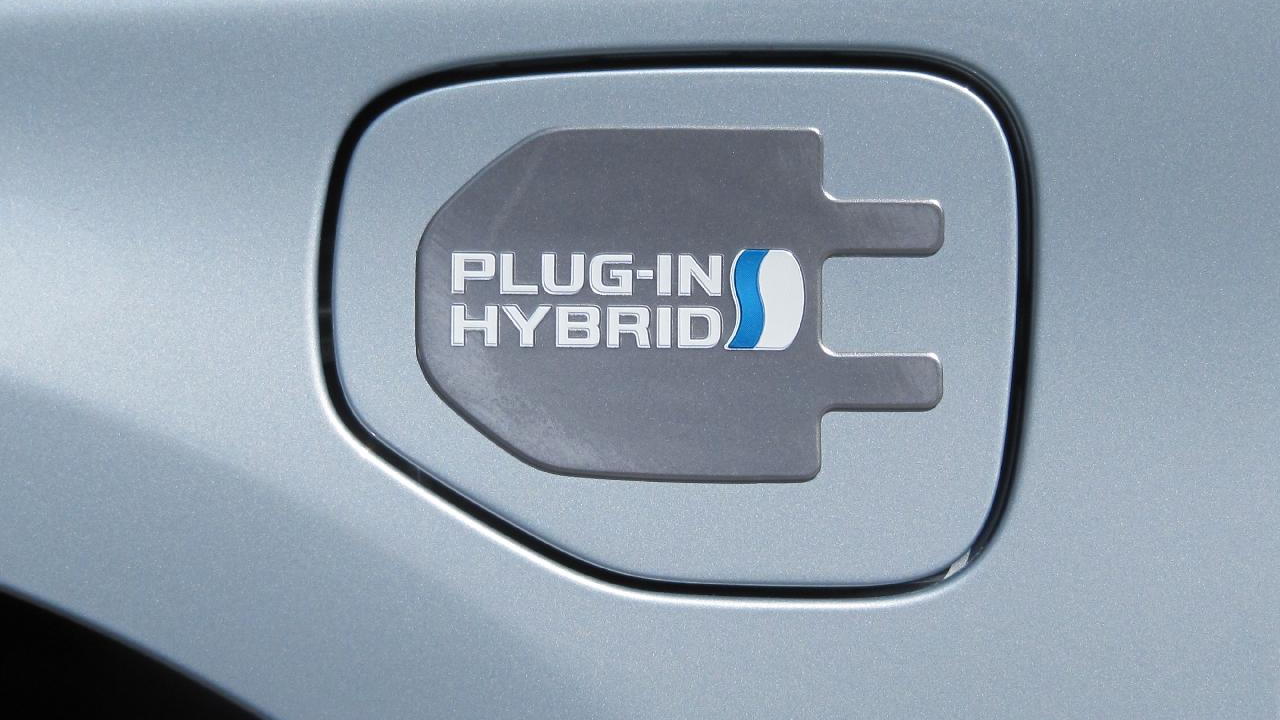We've been thinking a lot about the prototype 2012 Toyota Prius Plug-In Hybrid since our test drive of a prototype last month. And about the rest of the plug-in cars that will come to market over the next two years.
To our surprise, we decided we don't think buyers will directly compare the Prius Plug-In to such electric vehicles as the 2011 Nissan Leaf, the 2011 Chevrolet Volt, or the 2011 Coda Sedan.
Instead, we think the 2012 Prius Plug-In is simply going to be sold--and viewed by most buyers--as the top-of-the-line Prius.
It'll be the one with extra capability and more electric range, which will just happen to come from plugging it in to recharge it on grid power.
Why? Because the Toyota Prius is a known quantity, with a clearly defined image and a reputation for high gas mileage and Space Age styling. The Prius Plug-In looks and acts like a Prius with a bit more electric range, which is what it is.
Moreover, unlike the Leaf or the Volt, the Prius Plug-In's engine goes off and on as the car decides it needs to. The Volt is not a hybrid, remember: Its first 40 miles of electric range is continuous. That's not the case with the plug-in Prius.
Indeed, Toyota's Jana Hartline, who manages environmental communications, referred to the car as a "Prius on steroids." Her colleague Mary Nickerson, national manger for cross vehicle marketing, thinks of the Prius Plug-In she's driven for weeks as a "Prius Plus."
We think that may be an accurate way to characterize the car. It's worth noting that the metric Toyota stressed on our test drive wasn't electric range, but the percentage of total mileage done in electric mode--which over our 10-mile mixed drive was 63 percent.
Because it's so much like a standard Prius, and Toyota has stressed repeatedly that keeping the battery pack smaller and recharging it more often saves money, we expect the production car to come above the current $32,000 top of the Prius range--at, say, $35,000.
It will qualify for a Federal tax credit of slightly more than $2,500, based on pack size, far less than the maximum $7,500 for the Volt and Leaf, but enough to keep it within range of the wealthy buyers who choose Priuses instead of luxury cars.
With several plug-in cars going on sale during the next two years, carmakers are now starting to tune their marketing messages. Perhaps not surprisingly, the 2011 Chevy Volt may be pitched as the electric car without compromises--for which read "range anxiety."
Meanwhile, Toyota has built a total of 600 prototype Prius Plug-In Hybrids, of which 200 will be deployed in Europe and 150 in the U.S. The U.S. cars have now all been received and are being distributed to the fleets that will test them over the next year.
[Ward's]



















